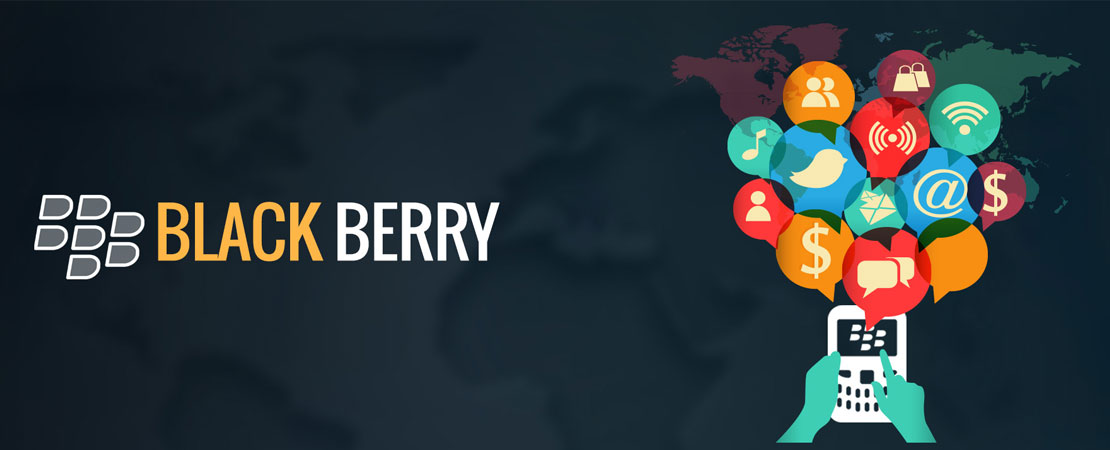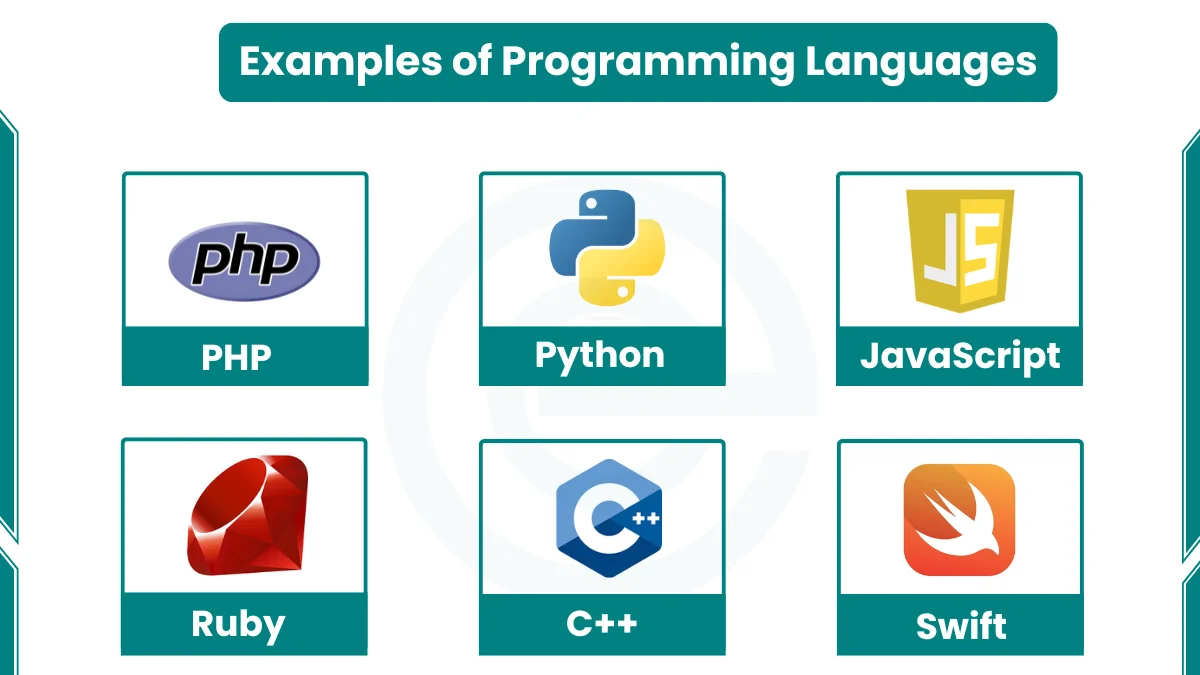Blackberry, unfortunately, does not take the immediate first place that comes to mind for mobile app development amidst all Android and iOS. In 2025, nevertheless, app development for Blackberry remains vital, especially in enterprise, security, and regulated sectors. With its history of safe communications and enterprise-level integration, Blackberry continues to power many mission-critical applications across industries. Let us almost comprehensively go through Blackberry app development, the future, the past, the resources, and the benefits it provides to the industry.

Introduction to Blackberry App Development
What Is Blackberry App Development?
The development of applications targeted to Blackberry devices directly or Android via their runtime for installation and running on Blackberry devices falls in the lane of Blackberry app development. Started for the sole purpose of corporate communication, Blackberry has come a long way and is now encompassing businesses with highly secure solutions; integration is between a mix of its own technology with power of Android.
Why Blackberry Still Matters in 2025?
After losing its position as a consumer mainstream platform, Blackberry still reigns in industries that appreciate secure communication and data handling. The industries served include defense, health, finance, and government to utilize the platform provided by Blackberry that ensures app security, sound data policies, and an overall effect on the entire enterprise IT.
Who Uses Blackberry Apps Today?
Blackberry-powered mobile solutions find particular traction in security-conscious organizations, which include government agencies, customs, financial houses, and global enterprises. With the supportive infrastructure in place for Android apps, development options grow even further.
Evolution from Blackberry OS to App Ecosystem
From BlackBerry OS to Blackberry 10 to Android Integration
The journey of BB10 began traversing through BBOS, and moved to a mature Blackberry 10 wrapper, which made its final transition into Android. While the BB10 operating system brought with it modern features augmented with security enhancement, the unbearable scarcity of apps continued to push BlackBerry toward Android, allowing it to sustain its existence altogether through compatibility and access to the Google Play ecosystem.
Blackberry Enterprises Mobility Role
Blackberry introduced mobile device management (MDM). This solution still imparts notable service by the year 2025, mainly by securing device, app, and content management policies through the Blackberry Enterprise Mobility Suite.
Highly Secure App Development for Business
Many of the data breaches and threats to cybersecurity have inclined many big to small enterprises to choose the secure platform provided by Blackberry for their mobile apps. Blackberry Dynamics and QNX give an additional layer of security that can't be matched so far by any other with powerful encryption standards, secured enterprise controls.
Key Features in Blackberry App Development

Enterprise-Level Security
For finance, health, defense, and legal practice-sensitive businesses, Blackberry is a clear choice that safeguards them the most. Malware, data breaches, and unauthorized access to applications can all be prevented using Blackberry's FIPS 140-2 validated encryption, its secure boot technologies, and a containerized data environment. Also, built-in security policies can severely restrict application behavior, enable remote data wipe, and set permissions which are all paramount for compliance to international standards like GDPR, HIPAA, and ISO/IEC 27001.
Push Notification Services
Blackberry Enterprise Push APIs provide the necessary backbone infrastructure for time-sensitive messaging over real time. These notifications are especially useful in mission-critical scenarios—sending emergency alerts within military or hospital systems, notifying users of stock market updates, or broadcasting changes to every employee within the corporate framework. Of course, low-latency communication fosters quick responsiveness while keeping all stakeholders updated without delay.
Productivity Tools and APIs
Blackberry provides developers with internal APIs targeting calendar, email, tasks, contacts, and document-sharing features. This type of integration allows programs to work in junction with enterprise business workflows—where they sync with Microsoft Exchange, Outlook, Google Calendar, and much more—ultimately increasing organizational productivity, centralizing communication, and supporting a more efficient mobile workforce.
Compatibility with Android Runtime
The Blackberry OS 10 and the later enterprise devices adopted Android Runtime just to cater to the modern mobile ecosystem. This permits Java or Kotlin-based Android applications to run on Blackberry with minimal changes. The hybrid deployment is thus opened up whereby companies can reuse their existing Android code base and still secure Blackberry's security and IT compliance standards.
Blackberry Hub Integration
Applications developed for Blackberry can be integrated with the Blackberry Hub—the unified inbox that brings together all communications: email, text, social media, and app notifications. This integrated experience increases productivity and enables users to securely manage their incoming information—all in one place.
Integration with Blackberry Dynamics
Blackberry Dynamics provides an end-to-end mobile application management (MAM) approach with secure app-level encryption, secure file storage, and dynamic policy control. Developers can embed secure containers in apps to safeguard corporate data even when apps are put to use on BYOD (Bring-Your-Own-Device) hardware. Dynamics supports SSO (Single Sign-On), remote configuration, and deep integration with enterprise identity providers, such as Azure AD and LDAP.
Blackberry Development Platforms and Tools
Blackberry Native SDK
Best suited to maintain legacy Blackberry 10 applications, the Native SDK (C++) provides access to low-level APIs together with hardware-dependent features. Though BB10 is no longer actively developed, a lot of industries still operate mission-critical apps built on this platform. Developers maintain these apps to get native performance, deep system control, and support for enterprise-grade protocols.
WebWorks for HTML5 Apps
WebWorks comes in handy to build hybrid apps based on the Ancient form with secure Blackberry containment. It will be an appropriate framework for developers wishing to deploy cross-platform with Blackberry security ecosystem. The abstraction layer also supports APIs for device hardware, push services, and secure storage.
Android Runtime and Android Studio
Modern Blackberry devices operate on Android OS, making Android Studio the go-to IDE for development. Developers can write apps using the Android SDK with full support for Java and Kotlin, and then optimize these apps for Blackberry’s specific hardware profiles and enterprise APIs. Blackberry provides guidance for enterprise app deployment within the Android ecosystem.
Eclipse Plugin for Blackberry
Eclipse, once the primary IDE for Java ME development on BBOS (Blackberry OS 7 and earlier), is still used by enterprises with legacy infrastructure. The Blackberry Eclipse Plugin streamlines the process of maintaining and updating older apps, which may still be in use in large corporations or secure sectors.
QNX for Embedded Blackberry Apps
Blackberry's QNX operating system is a real-time OS (RTOS) for such embedded systems in automotive, industrial automation, healthcare, and defense. QNX enables the development of highly reliable applications, offering failover mechanisms, real-time scheduling, and kernel-level security. Applications built on QNX drive systems like vehicle infotainment, connected medical devices, and avionics dashboards.
Programming Languages and Frameworks

Java for Classic Blackberry OS
Java ME (Micro Edition) was the backbone of application development for older Blackberry devices. Though considered mostly to be obsolete, Java ME applications are still being maintained across some industries that require such legacy support. These applications are typically responsible for some backend functions or act as interfaces to some proprietary enterprise systems.
C++ and Cascades for BB10
Cascades is a UI framework working with C++ to give rich native experiences on Blackberry 10. It allows developers to create sleek and highly interactive applications with animations, transitions, and advanced UX patterns—within Blackberry's secure sandboxed environment.
HTML5/CSS3/JavaScript via WebWorks
WebWorks from Blackberry enables enterprises to develop mobile applications for cross-platform and web-based application development using modern web languages. Working within Blackberry's secure infrastructure, these applications have access to device APIs for all of web flexibility and mobile protection.
Android Java/Kotlin for Blackberry Android Devices
With the adoption of Android OS in newer Blackberry phones such as KEY2 and Evolve, developers started writing apps in Java or Kotlin using the Android SDK. This transition opens Blackberry up to the vast Android developer community while maintaining its enterprise identity through added layers of security and management features.
Hybrid Frameworks: React Native, Flutter, Cordova
Android compatibility makes Blackberry a home for the hybrid frameworks: React Native, Flutter, and Apache Cordova, to write once and deploy everywhere. These frameworks considerably save development time and costs while assuring that an application is still compliant with Blackberry enterprise APIs and policies.
Setting Up the Blackberry App Development Environment
Installing Blackberry SDKs and Emulators
Archived SDKs for BB10 and WebWorks are still available on Blackberry’s developer portal. For Android-based development, Android Studio is the preferred environment. Developers should also install appropriate emulators for both legacy and modern devices to test various features.
Configuring Android Studio for Blackberry
Developers must configure Android Studio to align with Blackberry hardware specifications and security standards. Integration with Blackberry Dynamics SDK ensures that apps built in Android Studio can be deployed within a secured enterprise environment.
Testing on Physical and Virtual Devices
Testing is critical in Blackberry app development due to strict enterprise requirements. Developers should combine virtual emulators with physical Blackberry devices to test real-world performance, secure communications, and device-specific behavior.
Diagnosis and Deployment Best Practices
Adopt techniques such as encrypted logging, code obfuscation (e.g., ProGuard for Android), and digital signing using Blackberry keys. Review compliance with Blackberry Enterprise Mobility Suite (UEM) guidelines before deploying.
Programming Languages and Frameworks
Java for Classic Blackberry OS
App development for older Blackberry devices depended primarily on Java ME (Micro Edition). While Java ME is now very old-fashioned, some ME applications are still maintained wherever there is a requirement for supporting legacy systems. These apps usually perform important backend tasks or interface with proprietary enterprise systems.
C++ and Cascades for BB10
The Cascades UI framework in C++ allows building highly rich native experiences on Blackberry 10. It is therefore possible for developers to create very elegant, highly interactive apps that include animations, transitions, and sophisticated UX patterns all within Blackberry's secure sandboxed environment.
HTML5/CSS3/JavaScript via WebWorks
For cross-platform and web-based application development, Blackberry's WebWorks enables enterprises to deliver mobile apps using modern web languages. These apps can access device APIs while still operating within Blackberry's secure infrastructure, offering web flexibility and mobile safety.
Android Java/Kotlin for Blackberry Android Devices
With BlackBerry phones like KEY2 and Evolve adopting Android OS, the development of apps by developers is now done using Java or Kotlin through Android SDK. This transition, however, allows Blackberry to tap into the large Android developer community while still retaining its identity in the enterprise, through additional security and management features.
Hybrid Frameworks: React Native, Flutter, Cordova
With Android compatibility, BlackBerry is now inviting developers who have created their applications already development using hybrid frameworks like React Native, Flutter, and Apache Cordova. These frameworks save a lot of time and money in terms of development while still assuring application compatibility with the BlackBerry enterprise APIs and policies.
Setting Up the Blackberry App Development Environment
Installing Blackberry SDKs and Emulators
Archived SDKs for BB10 and WebWorks are still available on Blackberry's developer portal. Android development is done preferably in Android Studio. Developers should also install the appropriate emulators for both legacy and new devices to test various features.
Configuring Android Studio for Blackberry
This involves configuring Android Studio to partner with Blackberry hardware specifications and security standards. Integration with Blackberry Dynamics SDK means that all applications developed within this Android Studio can be deployed within a secured enterprise environment.
Testing on Physical and Virtual Devices
Testing is critical in Blackberry app development because of the strict enterprise requirements. Developers should always combine an emulator and a real Blackberry test device in order to examine real performance, secure communications, and device-specific behavior.
Diagnosis and Deployment Best Practices
Use encrypted logging, code obfuscation (such as for Android with ProGuard), and digital signing with Blackberry keys. All must comply with the UEM (Unified Endpoint Management) guidelines by BlackBerry before given for deployment.
Setting Up Blackberry App Development
Through Internal Distribution versus Blackberry World
Deployments are distributed either through its internal enterprise system or through Mobile.Deployments. Blackberry World being at the end of its life, domain; custom app stores or app distribution can be done via OTA using Blackberry UEM.
App Packing in Secured Containers
Apps made for deployment in enterprise environments must be signed with keys from Blackberry and packaged into a secure container. This container will ensure that applications are trusted and interact safely within the secure ecosystem of Blackberry.
Deployment of Blackberry Enterprise Mobility Suite (UEM)
Blackberry UEM allows companies to deploy their applications securely, manage permissions, enforce compliance, and update applications remotely across Android, iOS, and Blackberry devices from a single dashboard.
Signing Applications with Blackberry Certification
The procedure of signing the application gives it credibility and safety because the signing is done with Blackberry credentials. Developers should use Blackberry-issued unique signing keys to certify applications for enterprise deployment.
Use Cases of Blackberry Applications in Enterprises
Secure Messaging & Emails
Apps for encrypted SMS, email, and VOIP communications are the essence in government or financial services. Blackberry provides out-of-the-box tools and APIs for end-to-end encrypted messaging.
Health & Patient Data
Blackberry proves to be the best choice to build EHR(Electronic Health Record) applications, remote consultation solutions, and internal communication tools for hospitals, due to its HIPAA compliant security protocols.
Finance and Banking
Blackberry provides for encrypted mobile banking applications, secure authentication, and transaction monitoring applications equipped with encryption, biometrics, and fraud detection.
Government and Defense
National governments use Blackberry to facilitate secure document sharing, secure communications, and secure data storage. Blackberry's secure containerization and remote wipe features ensure absolute confidentiality.
Enterprise Workflow Tools
Blackberry is home to apps that excel in inventory tracking, human resources management, auditing, and secure internal communications owing to its secure and customizable platform.
Pros of Blackberry Application Development
- Unmatched Security Architecture: Includes AES encryption, sandboxing, remote management, and app-level policy enforcement.
- Multi-platform Compatibility: Blackberry supports Android, hybrid frameworks, and embedded systems.
- Strong Enterprise Integration: Seamless connection to corporate IT systems like SAP, Oracle, and Microsoft Exchange.
- Efficient Notification Infrastructure: Provides real-time notifications with minimum latency.
- BYOD Management: Allows separation of work/personal data with strong UEM policies.
Glimpses and Challenges
Shifting Consumer Base: Less B2C opportunities because of small market size.
Less Developer Ecosystem: Less forums, less tools, less community backing in comparison to Android/iOS.
Legacy System Compatibility: Older applications are more problematic on modern Blackberry Android devices.
Closure of Blackberry World: Limits public distribution; enterprise-controlled distribution methods are mandated.
Android Runtime Dependency: Need to know Android SDK, which may not be familiar for classic Blackberry developers.
Companying Others
Between Blackberry and Android for Enterprise: Blackberry in secured sectors wins against Android on app variety and user base.
Between Blackberry and iOS for Enterprise: Blackberry allows for more MDM flexibility and policy enforcement than Apple's iOS.
Blackberry and Windows Mobile: With the discontinuation of Windows Mobile, Blackberry is one of the contenders for secure enterprise solutions.
Cross-platform versus Native: Cross-platform fits general business needs; native suits apps needing deep security and integration.
Blackberry App Development in 2025: Trends and Opportunities
Blackberry in Regulated Industries
By 2025 Blackberry will remain the king in setting like defense, aviation, and banking, where mandatory regulatory compliance exists.
IoT and Embedded Blackberry Solutions via QNX
Your embedded Blackberry app development offer different possibilities with QNX that runs in medical devices, car infotainment systems, and industrial control systems.
More Demands for Encrypted Communication Apps
Demand for messaging, VOIP, and collaboration apps based on Blackberry is growing due to increased cyber-attacks.
Role in BYOD (Bring Your Own Device) Policies
With UEM, Blackberry secures employee devices while respecting privacy, making it the optimal solution in a BYOD ecosystem.
Top 5 Companies for BlackBerry App Development
| Rank |
Company Name |
Headquarters |
Key Strengths |
| 1 |
Infimintus Technologies |
Indore, India |
Enterprise-grade BlackBerry apps, secure coding, cross-platform integration |
| 2 |
Fueled |
New York, USA |
User-centric designs, high-end app experiences, startup-friendly |
| 3 |
OpenXcell |
Ahmedabad, India |
High security apps, regulated industry solutions, enterprise mobility |
| 4 |
Hidden Brains |
Ahmedabad, India |
Cross-platform and native BB10 apps, migration services, legacy system support |
| 5 |
Konstant Infosolutions |
Jaipur, India |
End-to-end a |
Infinimus Technologies - A Reliable Blackberry App Development Partner
Developed with Secure Program Specifics in Mind
At InfinimusTech, we specialize in the creation of secure scalable Blackberry applications that abide by the latest standards.
Some of Our Projects in Blackberry-Based Platforms
We have done encrypted messaging applications, HRMS tools, logistics applications, and finance applications for Blackberry devices.
End-to-End Development and Support Services
Starting from consulting and wireframing, we then follow up with deployment and maintenance right to the end on any BlackBerry OS platforms.
Qualities That Have Won Us the Trust of Enterprise-Clients
Our dedication to high security, creativity, and performance has already committed us to Blackberry app development in 2025.
Conclusion
Has there remained any worth in developing Blackberry Apps?
Yes! When Blackberry is in no state to shake the consumer app industry, it lies undeniably as the benchmark when it comes to secure communication for the enterprise.
Final Thoughts on Building Blackberry Apps in 2025
Considering that regulated industries and the demand for enterprise-grade security are evergreen, Blackberry app development is not just required; it is actually a must-have.
Red Our Another Article's:
Dynamic Web Designing: Meaning, Benefits, Features, Process, and Cost in 2025


















